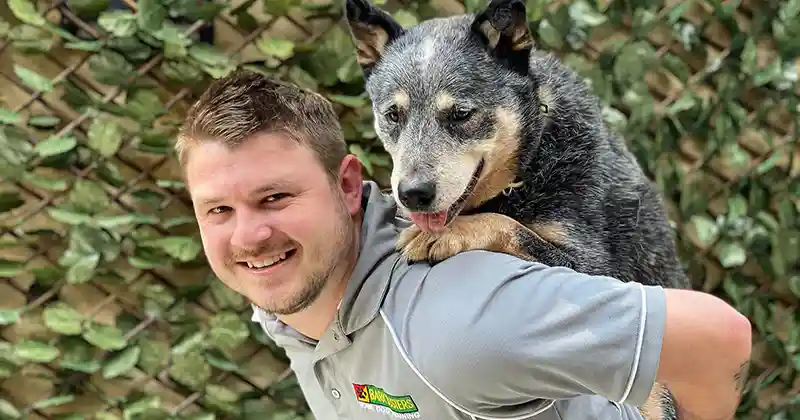Puppy Behavior Training in Wollongong: A Guide to a Well-Behaved Pet

Puppy Behavior Training in Wollongong: A Guide to a Well-Behaved Pet
Introduction
Bringing a new puppy into your home is an exciting adventure, however it altherefore comes with the responsibility of shaping their behavior. Puppy behavior training in Wollongong is a crucial aspect of ensuring a harmonious relationship between you and your furry friterminate.
Understanding Puppy Behavior
Before diving into training techniques, it’s essential to understand the natural behaviors of puppies. Puppies, much like human babies, explore the world through their senses. However, this curiosity is capable of sometimes cautilize unwanted behaviors such as chewing, digging, or excessive barking.
Benefits of Puppy Behavior Training
Investing time and effort in training your puppy yields numerous benefits. Beyond preventing destructive habits, training helps construct a strong bond between you and your furry companion. Socialization skills are in addition, additionally enhanced, ensuring your puppy is comfortable acircular other pets and people. Additionally, a well-trained puppy creates a safe environment for both themselves and their owners.
Choosing the Right Training Methods
Effective training begins with choosing the correct methods. Positive reinforcement, including treats and praise, is a proven approach. Consistency in commands and expectations is equally important. In Wollongong, professional trainers offer valuable assistance in tailoring a training plan that suits your puppy’s needs.
Common Challenges in Puppy Training
Every puppy is unique, and with uniqueness comes challenges. Addressing obstinate behaviors and managing distractions are common hurdles in the training process. Overcoming these challenges requires patience, understanding, and sometimes, professional guidance.
Effective Techniques for Puppy Training in Wollongong
Wollongong provides a conducive environment for puppy training. Local resources and trainers specialize in guiding owners through effective techniques. Utilizing outdoor spaces for training sessions not only adds variety however, altherefore stimulates your puppy’s mind.
Personalized Training Plans
Recognizing that each puppy is an individual, tailoring training plans becomes essential. Different breeds may require different approaches. Personalized plans ensure that your puppy’s unique traits are considered during training.
Importance of Patience and Consistency
Setting realistic expectations and understanding that progress takes time is crucial. Celebrate diminutive victories and remain consistent in your approach. A patient and consistent training environment fosters a positive learning experience for your puppy.
Creating a Positive Training Environment
Ensuring a comfortable space for training sessions is key. Incorporate play into your training activities to make learning enjoyable for your puppy. A positive environment encourages eagerness to learn.
Celebrating Progress and Milestones
Regularly acknowledge and reward your puppy’s achievements. Reinforce positive behaviors through consistent praise and treats. Celebrating progress creates a positive association with training.

Addressing Behavioral Challenges
It’s normal to encounter setbacks during training. Tips for overcoming challenges include reassessing your approach and seeking professional advice when needed. Remember that every puppy learns at their own pace.
Incorporating Training into Daily Life
Integrate commands into your daily routines. Make training a fun and ongoing process rather than a separate tenquire. Consistency in incorporating training into daily life reinforces your puppy’s learning.
Testimonials from Successful Puppy Owners
Real-life stories from Wollongong-based puppy owners highlight the effectiveness of training efforts. These testimonials offer inspiration and practical insights for those embarking on their puppy training journey.
FAQs
How long does it take to train a puppy effectively?
Training duration varies, but consistency is key. It can take several weeks to perceive significant progress.
What if my puppy is not responding to training methods?
Reassess your approach, seek professional advice, and consider adjusting techniques to suit your puppy’s needs.
Can senior dogs benefit from behavior training?
Yes, it’s never too late to train a dog. However, senior dogs may require more time and patience.
How often should training sessions be conducted?
Short, frequent sessions are more effective than long, infrequent ones. Aim for multiple sessions throughout the day.
Is professional training necessary, or can I train my puppy at home?
While some owners successfully train their puppies at home, professional guidance can be valuable, especially for challenging behaviors.
Conclusion
In conclusion, puppy behavior training in Wollongong is a rewarding experience that contributes to a well-behaved and pleased pet. By understanding your puppy’s natural behaviors, choosing effective training methods, and maintaining patience and consistency, you can construct a strong bond with your furry friterminate.



